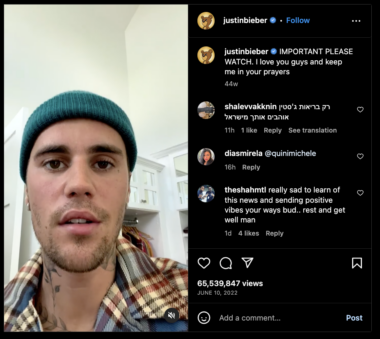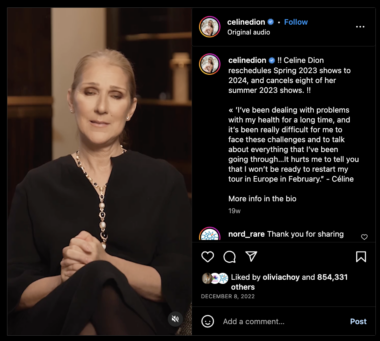Celebrities, athletes, politicians help promote rare disease awareness
People in the public eye can generate broad interest in rare disease research
Written by |

Before my daughter, Rylae-Ann, was diagnosed with aromatic l-amino acid decarboxylase (AADC) deficiency, I had no idea about the size and scope of the rare disease community. When I entered this new world, information and resources were difficult to find. But the power of celebrities and other public figures is helping to change this.
Recent rare disease awareness campaigns have been rooted in sharing personal affliction, but more people are taking helpful steps from outside the community.
Bruce Willis and frontotemporal dementia
In early 2022, Bruce Willis and his family announced that the now 68-year-old Hollywood star was suffering from a language disorder called aphasia. Then, earlier this year, Willis’ family announced that the actor’s condition had progressed, and he had received a more specific diagnosis of frontotemporal dementia, for which there is no cure.
After the family’s latest announcement, Kate Lee, chief executive of the Alzheimer’s Society, told The Independent that the society’s website saw a 12,000% increase in visitors. This is a significant awareness boost and hopefully will translate to more donations targeting research for new treatments and a cure.
Justin Bieber and Ramsay Hunt syndrome
In June 2022, Justin Bieber announced on Instagram that he had Ramsay Hunt syndrome, which can cause facial paralysis and hearing loss. His post received over 65 million views, and subsequent online searches of Ramsay Hunt syndrome exploded. This could help to raise awareness about other rare disorders and diseases as well.
Additionally, many major news outlets gave significant coverage to Bieber’s health situation. Thankfully, some of those reporters also provided actionable steps for their readers by linking to the National Organization for Rare Disorders website.

Justin Bieber announces to his Instagram followers that he has a rare condition called Ramsay Hunt syndrome, in June 2022. (Screenshot via Instagram)
Celine Dion and stiff-person syndrome
In December 2022, Canadian singer Celine Dion announced on Instagram that she had been diagnosed with stiff-person syndrome, a rare and progressive neurological disorder that causes muscles spasms, hyper-rigidity, debilitating pain, and chronic anxiety. The muscle spasms can be so violent that they can dislocate joints and break bones, according to The Stiff Person Syndrome Research Foundation. This is similar to the AADC deficiency symptom of dystonia, which caused our daughter to have a dislocated hip.
Stiff-person syndrome affects about one or two people in every million, so it’s not as rare as AADC deficiency, of which only about 135 cases have been described worldwide since 1990. But the rarity of Dion’s disorder has helped raise awareness about the challenges of finding doctors who are familiar with rare conditions.

Celine Dion announces to her followers that she has a rare disorder known as stiff-person syndrome, in December 2022. (Screenshot via Instagram)
Michael A. Taylor and the rare disease community
I don’t want to wait on celebrities to realize they have rare diseases for our community to receive support. For now, we will have to take what we can get. However, a better example of a public figure raising awareness is Minnesota Twins baseball player Michael A. Taylor. He recently started a home-run challenge to support Uplifting Athletes, a nonprofit rare disease advocacy and support platform. Baseball fans can support the campaign by pledging a donation for every home run he hits during the 2023 baseball season.
Taylor and his wife, Brianna, have committed to matching pledges up to a total of $75,000. They hope to raise more than $150,000 for the rare disease community.
Taylor’s sister Danielle was born with Edwards syndrome and understands the importance of rare disease awareness to develop cures.
Giorgia Meloni and AADC deficiency
One of the more significant awareness efforts for AADC deficiency by a public figure comes from the prime minister of Italy, Giorgia Meloni, who recently intervened on behalf of a 3-year-old Sicilian boy with AADC deficiency who needed gene therapy.
Celebrities, politicians, and other public figures hold a special key to creating immediate awareness, which can lead to more research, funding, and eventually, cures for rare diseases and disorders. I hope that others with a public spotlight will also consider supporting rare disease families.
Note: AADC News is strictly a news and information website about the disease. It does not provide medical advice, diagnosis, or treatment. This content is not intended to be a substitute for professional medical advice, diagnosis, or treatment. Always seek the advice of your physician or other qualified health provider with any questions you may have regarding a medical condition. Never disregard professional medical advice or delay in seeking it because of something you have read on this website. The opinions expressed in this column are not those of AADC News or its parent company, Bionews, and are intended to spark discussion about issues pertaining to aromatic l-amino acid decarboxylase deficiency.






Leave a comment
Fill in the required fields to post. Your email address will not be published.